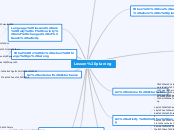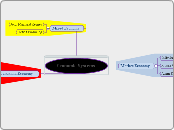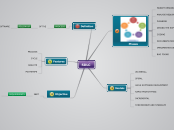Lesson planing
The activity does not work
the cassete player does not work
dont try to spend time trying to get it work
The class is out of control
Use a calming activity
Filling the words in a text
Like telling a story
An external disturbance
Make use of it
Kill the wasp or get it out of the room
What to do when things go wrong
everything will be fine as thing you planned.
Their concentrations goes
They do wherever comes into their heads.
The enthusiasm of the students sometimes overflows.
Language lessons are fully of variety and changes of each activity
At the end of the lesson we can check if we do all the things that we planed or if something is missing.
did pupils learned what i wanted them learn?
We can ask this question over the time
THE TOOLS OF THE TRADE
Word /sentence cards
Board games
Card games
Picture cards
Cardboard board
English corner
Papers dolls
Class mascot
Puppets
An activity is too long
decide to do this activity in another time to spend more time in it.
Say you will come back to it in another day
Ask to finish the activity in home
say that pupils can do this activity so well
An internal disturbance
someone of pupils bursts into tears or two of them start to fighting
You might take them out the classroom
If the class is already working individually or in pairs, then you can simply tell the other to get on with what they are doing and hope that they do.
You have extra time
Use one of the emergencie activities
Adapting in the context
When, how and with whom to plan
Alway have more activities than you need.
Indicate how much time will take
The time of day is important, do not do noisy long excercises at 4 i'clock on Friday
Link the lesson with the one before, and think about the one after.
Make the organization of the classroom as easy as possible
Decide how and when to use the group work.
Short term planing
Once long term is done, short term get easier
You can planing the lesson for one week or it will cover at least three lesson up ten
When you are a beginning teacher you can follow the lesson plan of experimented teachers while you are getting experience and you are getting able to discover and plan your own lessons.
Select what language items you are going to cover
Make sure you know the language items that you are going to cover.
Assessment is really important in the development of the knowledge of pupils.
Long therm planing
it will take place before or at the beginning of the term
Talk with the parent to explain them what you intend during the term or along the course.
Look the textbook before starting to giving a class for reorder the plan or take a look what you will do with the contain.
Decide what you want to cover in the term.
Try to work together with other teacher to unify the contains.
Use the material there are at the school for teaching in incidental way.
young children are usually full of enthusiasm and energy
All good teachers are able to modify their plans during the classroom progression
Pupils get older and they perceive how the lesson is prepared
it gives the possibility of observe instead planing the next activity
Teacher feel better because he knows what is going to happen in the classroom instead being worried of what he has to do after
it gives to you security and confidence
it can balance the lessons
Teacher will know that he needs for each lesson
it saves time
it makes easier the life of the teacher in the classroom









